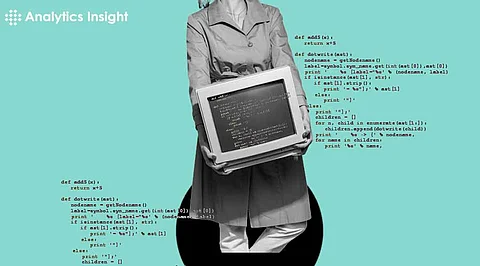

The development of technology is an incredibly growing topic, but backend frameworks remain the core basis of developing software. They provide developers with tools to build robust, scalable, and efficient applications. With trends like microservices, serverless computing, and AI integration emerging at the forefront, choosing the right backend framework can be a determining factor in staying competitive. So, here's a look at the top backend frameworks poised to dominate the landscape in 2025.
1. Node.js
With the asynchronous, event-driven architecture, Node.js still enjoys popularity among the developers. The feature of dealing with several simultaneous connections without overhead makes it suitable for applications like real-time chat apps and collaborative tools. In the year 2025, watch for Node.js to seamlessly coalesce with more advanced technologies like edge computing and serverless platforms to boost its functionality for dynamic applications.
Why Watch
Ecological growth with Node Package Manager.
Improved performance with the V8 engine.
Active developer community ensuring regular updates.
Python-based Django is a favorite for developers focusing on speed and security. Django simplifies web application development with built-in features like authentication, ORM (Object-Relational Mapping), and an admin panel. With Python's popularity soaring due to its applications in AI and machine learning, Django is all set to thrive in 2025.
Why Watch?
Perfect for rapid development.
Excellent scalability for large projects.
Security focus to prevent vulnerability.
Java trusted framework, Spring Boot, continues to shine in the development of enterprise-level applications. Being a trusted leader in microservices architecture and cloud-based deployments, it's clearly here to stay for complex, distributed systems. Spring Boot will be increasingly used more as enterprise brings in Kubernetes and Docker into their ecosystem.
Why Watch?
As much focus on modularity.
Good support for cloud-native applications.
Supported by a robust community and constant updates.
Though Ruby on Rails is facing stiff competition, it still is a reliable framework for developers wishing to create rich web applications in the shortest amount of time. The convention-over-configuration approach saves developer time considerably. In 2025, Ruby on Rails is likely to remain relevant due to its focus on developer productivity and ability to integrate into newer frontend frameworks.
Why Watch?
Easy to learn for developers who are new.
It allows for fast prototyping especially for new startups.
It has a great emphasis on maintainability.
Flask is another Python-based framework, and it's gaining popularity for its minimalist, yet flexible approach. Unlike Django, Flask doesn't come with many built-in features, leaving developers free to select their tools. This makes it ideal for custom applications that require certain libraries or extensions.
Why Watch?
Ideal for microservices architecture.
AI/ML library can be easily integrated.
Excellent documentation along with community support.
Microsoft's ASP.NET Core is a high-performance, cross-platform framework for building modern applications. It is an excellent option for enterprises implementing DevOps since it works well with Docker and Kubernetes. The fact that the framework can be combined with a number of programming languages, including C#, makes it versatile enough to match any development needs.
Why Watch?
Highly scalable for enterprise-level applications.
Strong support for cloud-native development.
Backed by Microsoft, hence robust updates and tools.
FastAPI has gained a much fan love among developers looking for speed and ease of use. Well-recognized for performance and automatic generation of interactive API documentation, this is the best Python-based framework for building APIs and web applications. In 2025, the count of usage of FastAPI is expected to surge AI and IoT application.
Why Watch?
Fast Speed with Asynchronous Programming
Built-in Support of Data Validation
Elegant Code Base / Highly Maintainable
Going into 2025, most backend frameworks will be the backbone for application development. This is to say that Node.js, Django, and Spring Boot will continue to dominate the scene, while FastAPI and others try to create niches in specialized areas. Choosing the right framework will depend on the kind of project one has, its scalability, and the skills set of one's development team.
